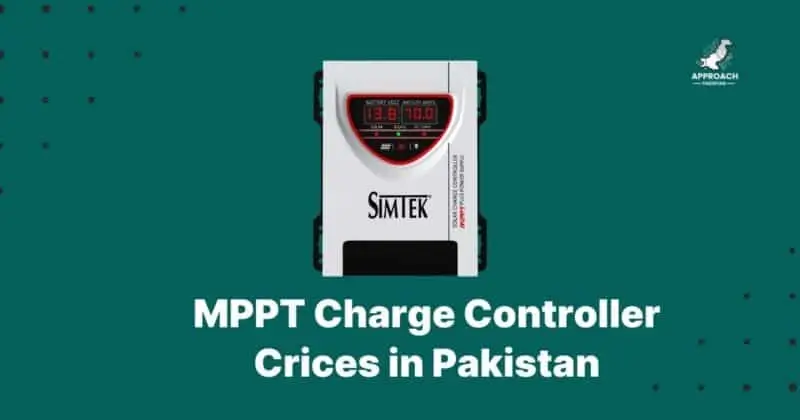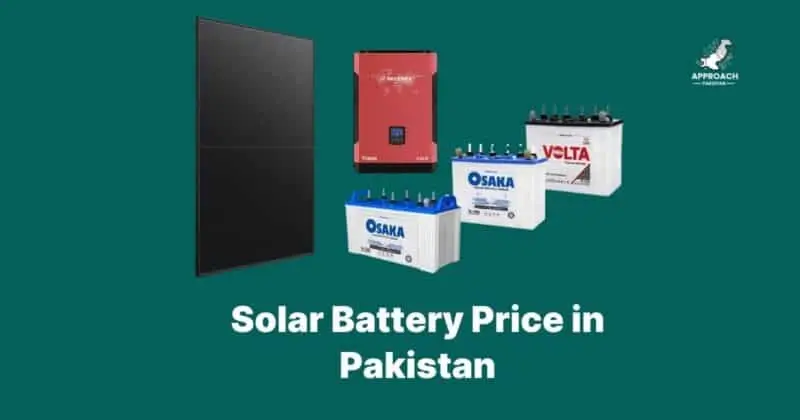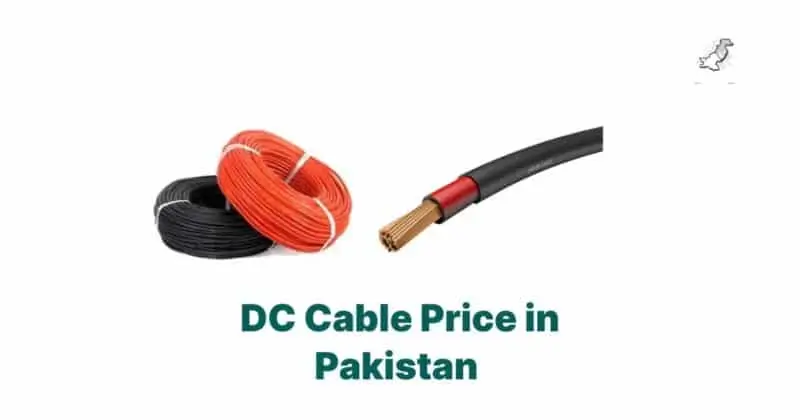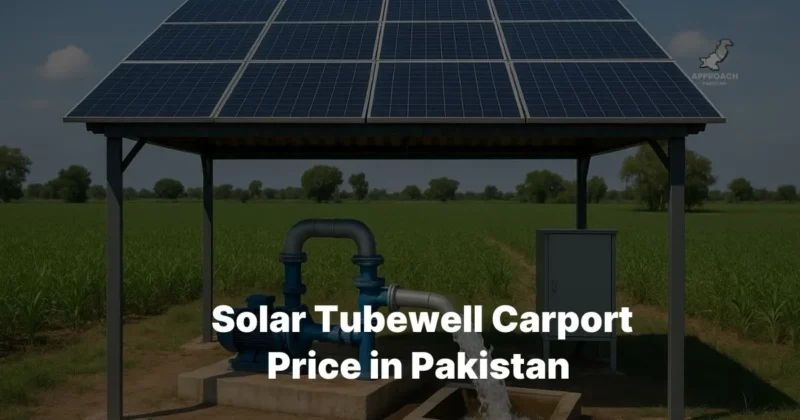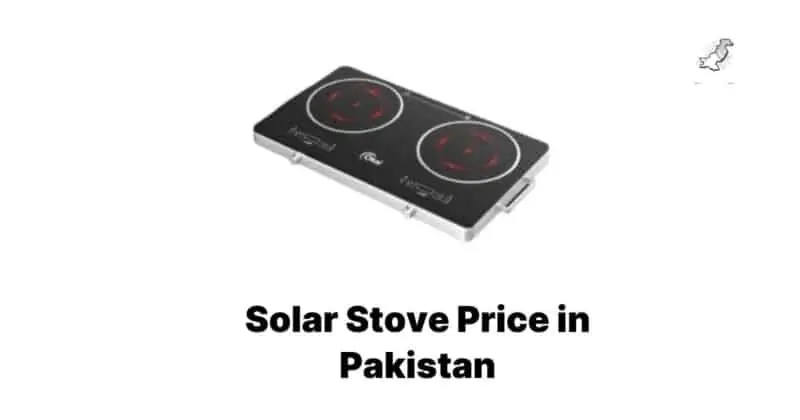Solar tubewell price in Pakistan | 3HP–25HP Systems Explained
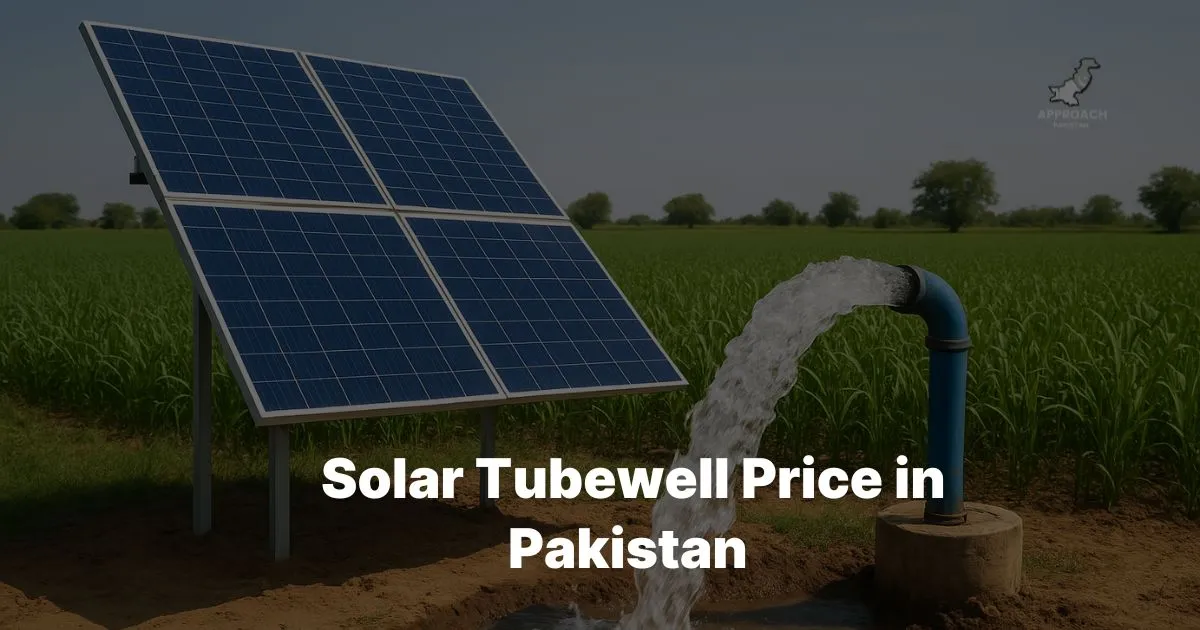
Solar tubewell price in Pakistan depends on system size (HP), components, installation, and quality. Here’s a snapshot:
- 3 HP system: PKR 380,000–520,000 (with inverter & mounting)
- 5 HP system: PKR 600,000–800,000
- 10 HP system: PKR 1.2–1.6 million
- 15 HP system: PKR 1.7–2.2 million
- 25 HP system: PKR 3–4.5 million
These figures vary based on panel wattage, pump material, inverter brand, mounting structure, and labor. This guide breaks it all down—costs, sizing, quality, ROI, and checklist—so you buy the right system, get transparent pricing, and start saving.
Introduction to Solar Tubewell
You’re tired of seeing monthly electricity bills climb. You worry about power outages disrupting your irrigation. You just want clear pricing and a system that works through Pakistan’s monsoon.I get it.
That’s why I’m laying out real costs for solar tubewells in Pakistan. No fluff. No hidden fees. Just solid info so you can pick the right size, understand ROI, and feel confident in your choice.
What is a Solar Tubewell?
A solar tubewell uses solar panels to power a submersible pump. It draws groundwater without using grid power or diesel.
This system is perfect for remote farms. It runs even in power outages. It saves on fuel costs and requires little maintenance.
Benefits: Cost Savings, Sustainability, Off-grid Capability
- Slash bills by 70–80%. Solar panels turn sun into free fuel.
- Energy independence. You control irrigation, not the grid.
- Transparent pricing. You buy upfront and own the asset.
- Eco-friendly. No carbon emissions, no diesel fumes.
Understanding HP ratings
| HP | Panels & Inverter | Mounting Structure | Pump & Accessories | Estimated Total |
| 3HP | PKR 100k–150k | PKR 50k–80k | PKR 150k–200k | PKR 380k–520k |
| 5HP | PKR 180k–250k | PKR 80k–120k | PKR 250k–300k | PKR 600k–800k |
| 10HP | PKR 360k–450k | PKR 150k–200k | PKR 600k–800k | PKR 1.2–1.6M |
| 15HP | PKR 540k–650k | PKR 200k–250k | PKR 900k–1.3M | PKR 1.7–2.2M |
| 25HP | PKR 900k–1.2M | PKR 300k–450k | PKR 1.8–2.85M | PKR 3–4.5M |
3HP solar tubewell price: around PKR 380k–520k including inverter and mounting.
5HP: PKR 600k–800k depending on quality.
10HP/15HP/25HP comparisons: as above.
System Components & Quality Considerations
Solar panels & wattage
- 3HP needs ~2.5 kW panels (panel cost 2–3k).
- 10HP needs ~8–10 kW.
- Panels affect efficiency and lifespan—choose Tier-1 from Trina, JA Solar.
Inverter and pump quality
- Inverter: MPPT type, 5-year warranty, surge protection.
- Pump: stainless steel body resists rust.
- Nozzle size affects discharge; bigger farms need larger nozzles.
Mounting structures
- L2 galvanized steel on concrete pad.
- Pole mounts for uneven ground.
- Structure cost: 10–15% of panel cost.
Installation & Setup Costs
Mounting equipment
- L2 frame kits: PKR 50–120k.
- Poles and clamps: depends on soil and terrain.
Electrical wiring & installation
- Use MC4 connectors and 4 mm² wiring.
- Inverter and pump wiring: PKR 30–60k.
Labor costs
- Skilled crew: PKR 50–100k.
- Rural areas cheaper; urban access raises costs.
Solar TubeWell Operations & Maintenance
Energy efficiency & savings
- Simple system, high efficiency.
- Monitor with digital meter.
- Suggested data: sample bill showing PKR 10,000 to PKR 2,000.
Maintenance
- Stainless steel pump lasts 10+ years.
- Panels: clean twice yearly.
- Inverter: annual inspection.
Warranty & lifespan
- Panels: 10–12 years.
- Inverters: 5 years.
- Pump: 2–3 years.
Tubewell Financing & Incentives Programs
Government subsidies / PAYGO
- Punjab renewable grants (check seasonal).
- Providers offer monthly payments with balloon options.
ROI & payback
- Provide sample calculation table.
- 3HP system pays off in ~18–24 months.
- 10HP system recovers in 2–3 years.
How to Get Accurate Quotes in Pakistan
What to ask vendors
- Ask for “all-inclusive” price: panels, pump, inverter, mounting, wiring, labor.
- Check warranties and response time.
- Ask for manufacturer data: panel watt, pump flow curve.
Checklist before purchase
- Size matches HP need.
- Panel brand/warranty.
- Inverter MPPT compatibility.
- Pump stainless vs cast iron.
- Written terms, service support.
Conclusion & Buyer’s Checklist
- Pick right HP for your field size.
- Compare system costs transparently.
- Prioritize quality (panels/inverter/pump).
- Factor ROI and financing.
- Use the pre-purchase checklist.
With the right system, you’ll reduce bills, escape outages, and enjoy sustainable farming.

